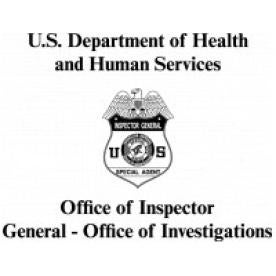Finds that the U.S. Department of Health and Human Services put its “thumb on the scale”
On Monday February 8, a judge in the Eastern District of Texas again rejected the U.S. Department of Health and Human Services (HHS) Independent Dispute Resolution (IDR) rules on the grounds that the Rules continued to “put a thumb on the scale” for the arbitrator’s reliance on the Qualified Payment Amount (QPA) contrary to the statutory language of the No Surprises Act.
Judge Jeremy D. Kernolde accepted the plaintiffs’ argument that the final rule exceeded the government’s statutory authority and conflicted with the Administrative Procedure Act because it gave too much weight to the QPA, which is generally the median of the contracted rates recognized by a plan or insurer under their plans or coverage. The Judge wrote that “While avoiding an explicit presumption in favor of the QPA, the final rule nevertheless continues to place a thumb on the scale for the QPA by requiring arbitrators to begin with the QPA and then imposing restrictions on the non-QPA factors that appear nowhere in the statute.” The same judge had issued a similar decision in February of 2022 invalidating HHS’ interim rule which would have required IDR arbitrators to select an offer closest to the QPA.
The final rule issued by HHS tried to avoid the concerns expressed in the February ruling by instead requiring arbitrators to consider the QPA first and then restricting how the arbitrators are permitted to consider information relating to the non-QPA factors. Specifically, the Rule prohibited arbitrators from “giv[ing] weight” to such non-QPA information unless several requirements were met: the information must be “credible,” must “relate[ ] to the offer submitted by either party,” and not be “already accounted for by the [QPA].” Furthermore, if an arbitrator “relies on” any of the non-QPA information, the arbitrator would have been required to explain in writing “why [the arbitrator] concluded that this information was not already reflected in the [QPA].”
Under the Court’s ruling vacating the final rules, the IDR arbitrators will rely on the terms of the NSA statute, which requires the arbitrator to consider not just or primarily the QPA but also (unless otherwise prohibited):
I. The level of training, experience, and quality and outcomes measurements of the provider or facility that furnished such item or service (such as those endorsed by the consensus-based entity authorized in section 1890 of the Social Security Act [42 U.S.C. 1395aaa]).
II. The market share held by the nonparticipating provider or facility or that of the plan or issuer in the geographic region in which the item or service was provided.
III. The acuity of the individual receiving such item or service or the complexity of furnishing such item or service to such individual.
IV. The teaching status, case mix, and scope of services of the nonparticipating facility that furnished such item or service.
V. Demonstrations of good faith efforts (or lack of good faith efforts) made by the nonparticipating provider or nonparticipating facility or the plan or issuer to enter into network agreements and, if applicable, contracted rates between the provider or facility, as applicable, and the plan or issuer, as applicable, during the previous 4 plan years.
§ 300gg-111(c)(5)(C).
This decision is likely to improve providers’ recovery under the IDR process because it requires consideration of factors other than the QPA, which providers claim can be manipulated by the payors. Judge Kernolde states that the vacatur of the referenced provisions of the Rule ordered by the Court “would preserve the status quo because arbitrators have been—and are presently—deciding payment disputes pursuant to the statute since the Court vacated the interim final rule nearly a year ago.” Regardless, parties who have had decisions rendered through the IDR process since the interim rule was vacated may try to argue that CMS’ guidance to arbitrators reflected now invalidated policies such that these IDR decisions should be vacated and reheard. Moving forward, providers should now be more eager to avail themselves of the IDR process to dispute underpayments.




 i
i


